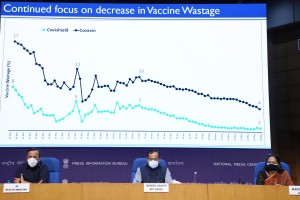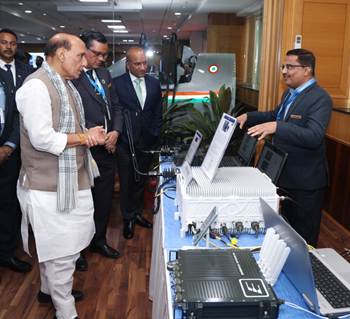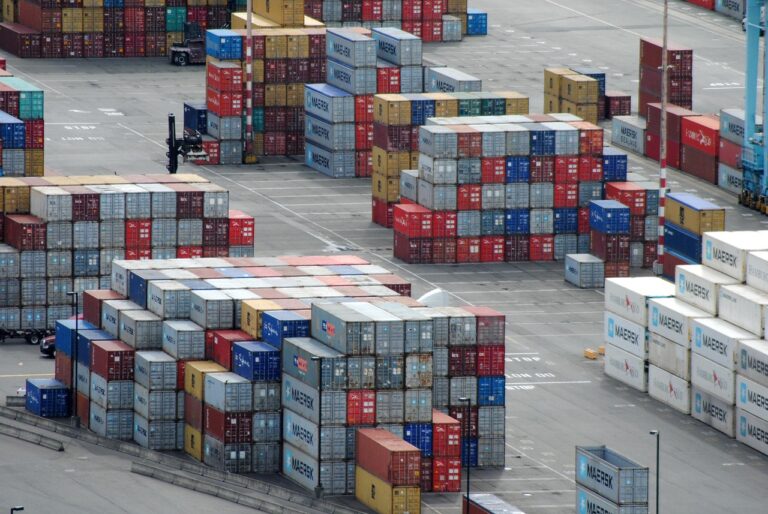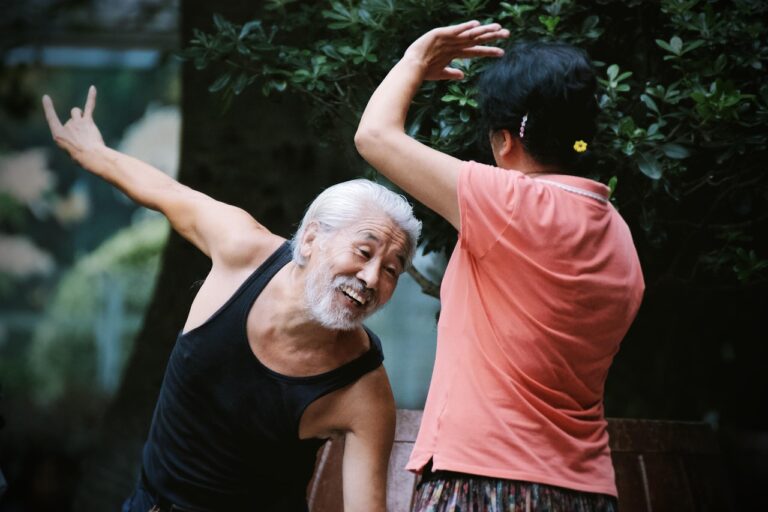
File photo of Niti Aayog member Vinod Paul addressing a press conference in New Delhi
New Delhi: In face of shortage of COVID19 vaccines, Indian Government today reiterated its request to all international vaccine makers to come and make in India – “for India and for the world”. It stated that it has remained engaged continuously with all the major international vaccine manufacturers right from mid-2020 and had had multiple rounds of discussions with vaccine makers Pfizer, J&J and Moderna.
“We need to understand that buying vaccines internationally is not similar to buying ‘off the shelf’ items. Vaccines are in limited supply globally, and companies have their own priorities, game-plans and compulsions in allocating finite stocks. They also give preference to countries of their origin just as our own vaccine makers have done unhesitatingly for us,” Dr. Vinod Paul, Member (Health) in NITI Aayog and Chair of the National Expert Group on Vaccine Administration for COVID-19 (NEGVAC), stated today in a release titled “Myths & Facts on India’s Vaccination Process”.
Dr. Paul said while the Central Government and Pfizer are working together for the earliest possible import of the vaccine after the company indicated vaccine availability, Russia has already sent two tranches of Sputnik vaccines and accomplished tech-transfer to Indian companies and Sputnik will be manufactured by 6 companies coordinated by Dr Reddy’s, “very soon”.
The Central Government had eased entry of vaccines approved by US FDA, EMA, UK’s MHRA and Japan’s PMDA, and WHO’s Emergency Use Listing into India in April. These vaccines will not need to undergo prior bridging trials, Dr. Paul said, and informed that the provision has now been further amended to waive off the trial requirement altogether for the well-established vaccines manufactured in other countries. “No application of any foreign manufacturer for approval is pending with the drugs controller,” he said.
With regard to ramping up domestic production of vaccines, Dr. Paul said that there is only one Indian company, Bharat Biotech, which has the IP [Intellectual Property] for Covaxin and the Union Government has ensured that three other Public Sector Undertakings (PSUs) start production of Covaxin. Besides, the government is also enhancing Bharat Biotech’s own plants, which have increased from 1 to 4, he informed. He further added that Covaxin production by Bharat Biotech is now being increased from under 1 crore per month to 10 crore per month by October. Additionally, the three PSUs will together aim to produce upto 4.0 Cr doses by December, he said, and also claimed that with constant encouragement of the Government, Serum Institute of India was ramping up Covishield production of 6.5 crore doses per month to 11.0 crore doses per month. Moreover, development of Bharat Biotech’s single dose intranasal vaccine was “proceeding well with Government of India funding, and it could be a game-changer for the world,” he said.
Dr. Paul said the Union Government was also supporting Zydus Cadila, BioE as well Gennova for their respective indigenous vaccines through liberal funding under Covid Suraksha scheme as also the technical support at national laboratories. “The estimate of production of over 200 crore doses by our vaccine industry by the end of 2021 is the result of such efforts and unstinted support and partnership. How many countries can even dream of such an enormous capacity, and that too across conventional as well as cutting-edge DNA and mRNA platforms?” he asked.
Describing as yet another myth reports that claim Centre has abdicated its responsibility to the states, Dr. Paul said the Central Government is doing all the heavy-lifting, from funding vaccine manufacturers to giving them quick approvals to ramping up production to bringing foreign vaccines to India. “The vaccine procured by the Centre is supplied wholly to the states for free administration to people. All this is very much in the knowledge of the states. GoI has merely enabled states to try procuring vaccines on their own, on their explicit requests,” he said. He stressed that the states very well knew the production capacity in the country and what the difficulties are in procuring vaccines directly from abroad. “In fact, GoI ran the entire vaccine program from January to April and it was quite well-administrated compared to the situation in May. But states, who had not even achieved good coverage of healthcare workers and frontline workers in 3 months wanted to open up the process of vaccination and wanted more decentralisation,” he said. Pointing out that health is a state subject and the liberalised vaccine policy was a result of the incessant requests being made by the states to give states more power., he said that the fact that global tenders have not given any results “only reaffirm what we have been telling the states from day one: that vaccines are in short supply in the world and it is not easy to procure them at short notice”.
He claimed that Centre was allotting enough vaccines to the states in a “transparent manner” as per agreed guidelines. “In fact, states are also being informed in advance of the vaccine availability. Vaccine availability is going to increase in near future and much more supply would be possible. In the non-GoI channel, states are getting 25% of the doses and private hospitals are getting 25% doses. However the hiccups and issues faced by the people in the administration of these 25% doses by the states leave a lot to be desired,” he said. He said it is “very unfortunate that some political leaders, in spite of full knowledge of the facts on vaccine supply, appear on TV daily and create panic among the people”.
On the question of vaccinating children, Dr. Paul said as of now, no country in the world is giving vaccines to children. Also, WHO has no recommendation on vaccinating children. “There have been studies about safety of vaccines in children, which have been encouraging,” he said and informed that trials in children in India are also going to begin soon. However, he said, vaccinating children will be decided by scientists after adequate data is available based on trials.
– global bihari bureau






Good information